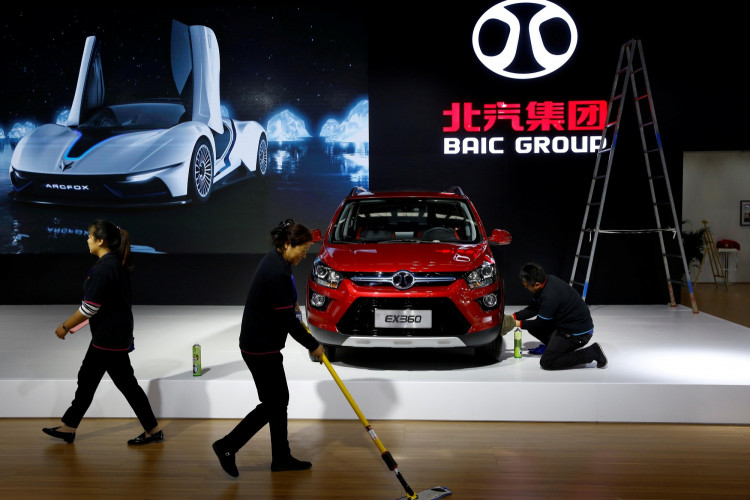BAIC BJEV, a subsidiary of state-owned BAIC Group, is pushing for the adoption of swappable battery technologies to bolster the usage of new energy vehicles in China. The company announced late last week that it plans to increase its fleet of batter swap-capable vehicles to more than 30,000 by the end of this year.
To support the planned fleet increase, the company announced plans of building at least 100 new battery swapping stations by the second half of this year. The stations will be installed in key locations around major cities such as Beijing and Xiamen. With the additional 100 stations, BJEV will have a total of 300 battery-swapping stations across the country. The company ultimately wants to have at least 3,000 swapping stations by the end of 2022.
The building of the battery swapping stations was included in the country's Government Work Report for May, an indication of China's support for the adoption of the technology and its potential to dramatically change the new energy landscape in the coming years.
Unlike standard electric vehicles, which have to be charged for a couple of hours at a charging station, battery swappable vehicles can be in and out of a swapping station in just minutes. The technology effectively solves the problems plaguing standard new energy vehicles, by giving users the convenience of having access to fully charged batteries at all times.
China's support of the technology underscores its belief of how battery swapping could answer doubts of consumers of typical new energy vehicles. BJEV spokesman, Lian Qingfeng, points out that most owners don't really have a private garage or a fixed parking space where they can charge their electric cars. BJEV's vehicles offer the only reasonable solution to the problem, allowing more consumers to have access to emission-free mobility.
Another big benefit of going with swappable battery-enabled new energy vehicles is cost and access to new battery technologies. Nio, another Chinese electric firm that believes in the application of the technology, reasons that users that buy these types of vehicles will benefit from getting access to new battery technologies as they emerge.
Swappable battery cars are expected to be also much cheaper to buy, with BJEV planning to sell vehicles without batteries. Consumers can instead opt to "rent" out batteries when they need to use them and swap them with fully charged ones at swapping stations. This also resolved the worry of the depreciation of aged batteries as consumers can rent newer ones when available.
Another benefit is the fact that swapping stations are much cheaper to build. A standard swapping station with around 28 batteries available will only take up around 70 square meters of space. A standard station is estimated to cost only around 3 million yuan or roughly $420,000 to build.





